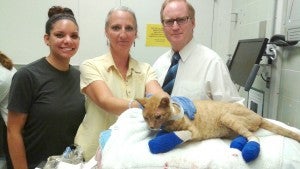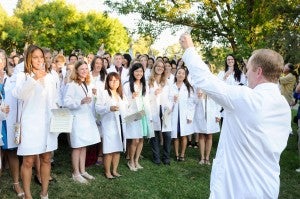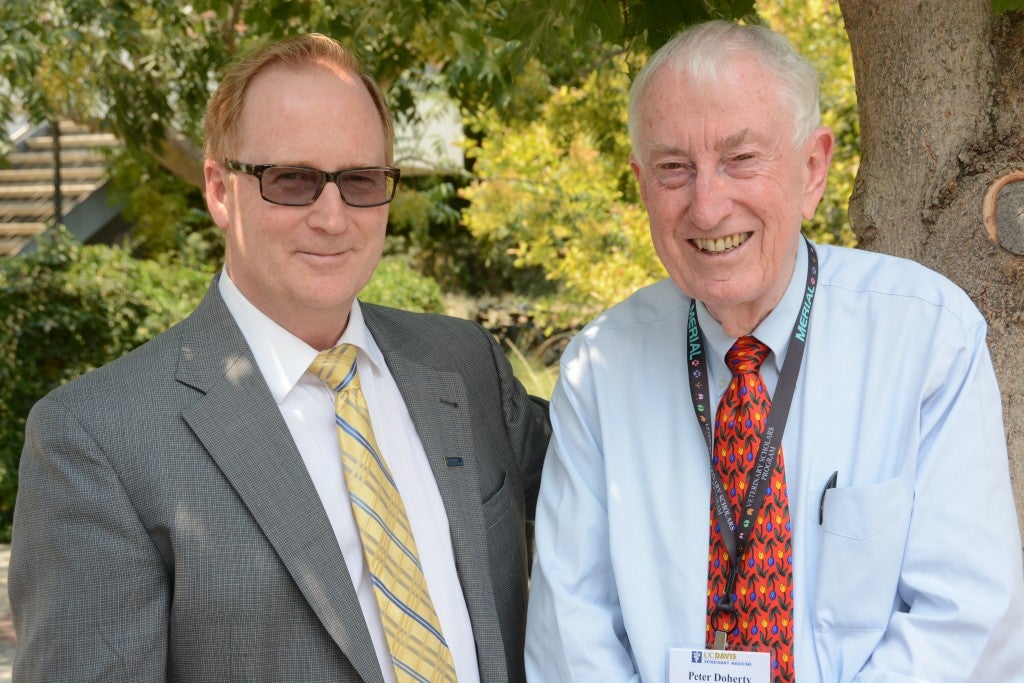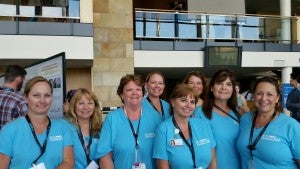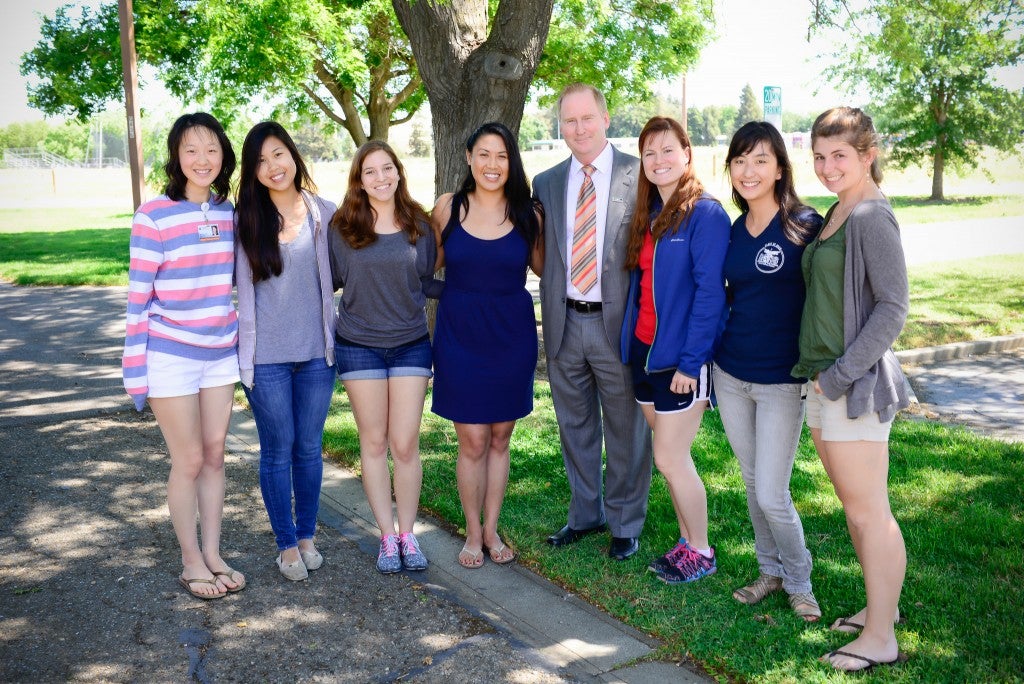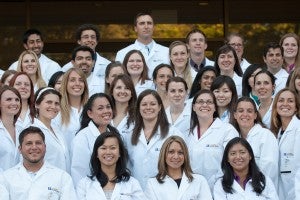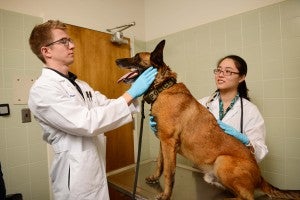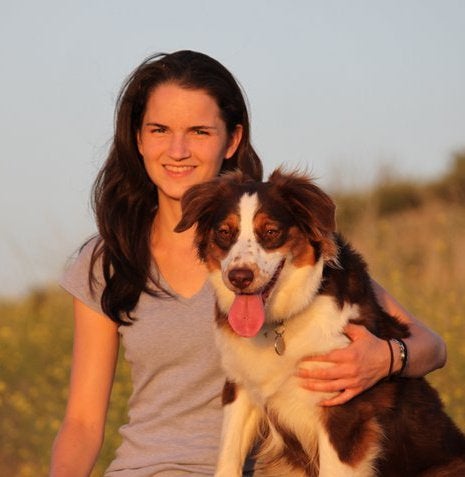“The delicate balance of mentoring someone is not creating them in your own image, but giving them the opportunity to create themselves.” – Steven Spielberg
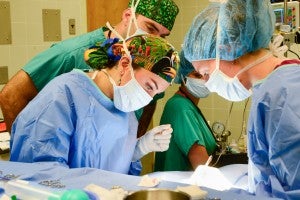
Companion Exotic Animal Medicine & Surgery Service (CAPES) resident Dr. Miranda Sadar (right), accompanied by student Athena Gianopoulos and staff, prep and neuter a pet rabbit at the veterinary hospital.
At the UC Davis School of Veterinary Medicine, we are in the business of mentoring on a daily basis. An important aspect of our educational mission as we train the next generation of leaders in veterinary medicine and science is creating an environment that fosters best practices in mentoring. Faculty, staff, deans, and students all benefit from being mentored and if each of us thought for a minute, we could likely recall a key mentor in our lives that helped guide us at critical junctions in our careers.
There are various types of mentors. A mentor can serve the purpose to inform a mentee about a field of study or become more involved as a career mentor devoted to the professional development of their mentee. A life mentor often provides guidance beyond professional career growth and may discuss wellness and the balance of work-life with those they advise. Peers can be effective mentors and provide more informal guidance.
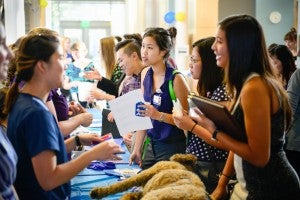
Students meet with prospective employers at the 2015 Career and Networking Night organized by the Career and Wellness Center.
To be an effective primary mentor for someone requires a synthesis of all of the advice and information, and the ability to map a pathway for the professional and personal growth of the person who is being mentored. Regardless of the type of mentor-mentee relationship, effective mentoring is the joint responsibility of the academic or program unit, the faculty or clinician advisors, and the person who is the mentee. To this end, we have developed the SVM Career, Leadership and Wellness Center, which offers numerous professional and career development services to support the success of our DVM students.

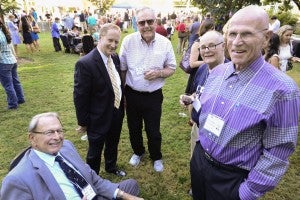
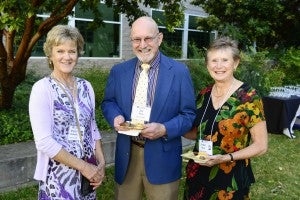 A new website has been created to highlight the history of the school
A new website has been created to highlight the history of the school